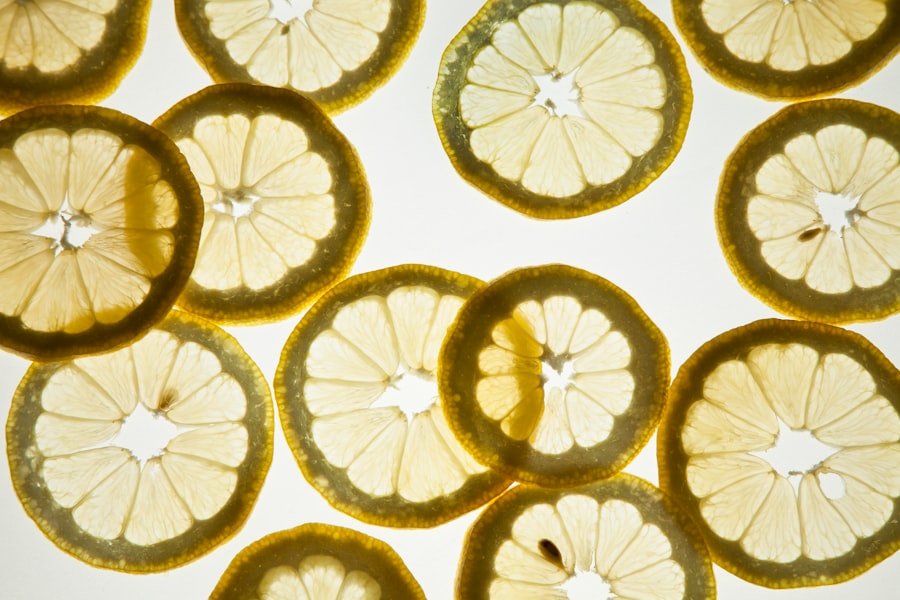Skin hyperpigmentation is a common dermatological condition characterized by the darkening of certain areas of the skin due to an excess production of melanin, the pigment responsible for skin color. This phenomenon can manifest in various forms, including age spots, melasma, and post-inflammatory hyperpigmentation, which often occurs after an injury or inflammation of the skin. The condition can affect individuals of all skin types and tones, leading to a range of emotional and psychological impacts, particularly in cultures where even skin tone is highly valued.
The appearance of hyperpigmented areas can vary significantly, from small freckles to larger patches that cover more extensive regions of the skin. While hyperpigmentation itself is not harmful, it can be a source of concern for many people, prompting them to seek treatment options. Understanding the underlying mechanisms of hyperpigmentation is crucial for effective management and treatment.
The process begins when melanocytes, the cells responsible for melanin production, become overactive due to various triggers, leading to an uneven distribution of pigment across the skin.
Key Takeaways
- Skin hyperpigmentation is the darkening of certain areas of the skin due to an excess production of melanin.
- Causes of skin hyperpigmentation can include sun exposure, hormonal changes, and skin injuries or inflammation.
- Natural remedies for treating skin hyperpigmentation include lemon juice, aloe vera gel, turmeric, and apple cider vinegar.
- Lemon juice can be used to lighten hyperpigmentation due to its natural bleaching properties.
- Aloe vera gel can help even out skin tone and reduce hyperpigmentation when applied regularly.
Identifying the Causes of Skin Hyperpigmentation
Sun Exposure and Its Effects
One of the most prevalent causes is sun exposure. Ultraviolet (UV) rays from the sun stimulate melanocytes to produce more melanin as a protective response, which can lead to sunspots or solar lentigines over time. This is particularly evident in individuals who spend significant time outdoors without adequate sun protection.
Hormonal Changes and Their Impact
Hormonal changes also play a significant role in the development of hyperpigmentation. Conditions such as pregnancy can lead to melasma, often referred to as the “mask of pregnancy,” where dark patches appear on the face due to hormonal fluctuations.
Other Contributing Factors
Additionally, certain medications, particularly those that increase sensitivity to sunlight or alter hormonal levels, can exacerbate pigmentation issues. Other factors include genetics, where a family history of hyperpigmentation may predispose individuals to similar conditions, and lifestyle choices such as smoking and poor diet, which can affect skin health and pigmentation.
Natural Remedies for Treating Skin Hyperpigmentation

Natural remedies have gained popularity as alternative treatments for skin hyperpigmentation due to their accessibility and perceived gentleness on the skin. Many individuals prefer these methods over chemical treatments or invasive procedures, seeking solutions that align with a holistic approach to skincare. One of the primary advantages of natural remedies is that they often contain antioxidants and anti-inflammatory properties that can help soothe the skin while addressing pigmentation issues.
Among the most commonly used natural remedies are plant-based ingredients known for their skin-lightening properties. For instance, licorice extract has been shown to inhibit melanin production and reduce the appearance of dark spots. Similarly, niacinamide, a form of vitamin B3 found in various foods and skincare products, has been recognized for its ability to brighten skin tone and improve overall texture.
These natural ingredients can be incorporated into daily skincare routines or used in DIY formulations to target hyperpigmentation effectively.
Using Lemon Juice to Lighten Hyperpigmentation
Lemon juice is often touted as a natural remedy for hyperpigmentation due to its high citric acid content, which acts as a natural exfoliant. The acidic nature of lemon juice helps to slough off dead skin cells and promote cell turnover, potentially leading to a more even skin tone over time. Additionally, lemon juice contains vitamin C, an antioxidant known for its brightening effects on the skin.
When applied topically, it may help reduce the appearance of dark spots and enhance overall radiance. However, caution is advised when using lemon juice on the skin. Its acidity can cause irritation or sensitivity, particularly in individuals with sensitive skin or those who are prone to allergic reactions.
It is recommended to dilute lemon juice with water or mix it with other soothing ingredients like honey or aloe vera before application. Furthermore, because lemon juice can increase photosensitivity, it is crucial to apply sunscreen during the day when using this remedy to prevent further pigmentation issues.
Applying Aloe Vera Gel to Even Out Skin Tone
Aloe vera gel is another natural remedy that has garnered attention for its soothing and healing properties. Rich in vitamins, minerals, and antioxidants, aloe vera can help calm irritated skin while promoting healing and regeneration. Its ability to hydrate the skin makes it an excellent choice for individuals dealing with dryness or irritation associated with hyperpigmentation treatments.
The application of aloe vera gel can help improve skin texture and tone over time. It contains aloin, a compound known for its potential skin-lightening effects. Regular use of aloe vera gel may help diminish the appearance of dark spots and promote a more uniform complexion.
For optimal results, it can be applied directly to affected areas or mixed with other beneficial ingredients such as turmeric or honey to enhance its efficacy.
Incorporating Turmeric into Your Skincare Routine

The Power of Curcumin
The active compound curcumin found in turmeric is believed to inhibit melanin production and reduce hyperpigmentation effectively. This makes turmeric a popular ingredient in various skincare formulations aimed at evening out skin tone and reducing dark spots.
Incorporating Turmeric into Your Skincare Routine
Incorporating turmeric into your skincare routine can be done in several ways. One common method is creating a face mask by mixing turmeric powder with yogurt or honey to form a paste. This mask can be applied to the face for about 15-20 minutes before rinsing off with lukewarm water.
Important Precautions
Regular use may lead to noticeable improvements in skin tone and texture. However, it is essential to perform a patch test before applying turmeric masks widely, as some individuals may experience staining or irritation.
Using Apple Cider Vinegar as a Natural Skin Brightener
Apple cider vinegar (ACV) has gained popularity as a natural remedy for various skin concerns, including hyperpigmentation. Its acidic nature helps exfoliate the skin gently while balancing pH levels. The acetic acid present in ACV may assist in fading dark spots by promoting cell turnover and revealing fresher skin underneath.
To use apple cider vinegar for hyperpigmentation, it is advisable to dilute it with water before applying it to the skin. A common ratio is one part ACV to three parts water. This diluted solution can be applied using a cotton ball or pad directly onto affected areas or used as a toner after cleansing the face.
As with other natural remedies, it is crucial to monitor how your skin reacts and discontinue use if any irritation occurs.
Creating a DIY Hyperpigmentation Mask with Honey and Yogurt
A DIY mask combining honey and yogurt offers a nourishing approach to treating hyperpigmentation while providing hydration and soothing benefits. Honey is known for its antibacterial properties and ability to retain moisture in the skin, making it an excellent ingredient for promoting overall skin health. Yogurt contains lactic acid, which acts as a gentle exfoliant that can help brighten the complexion by removing dead skin cells.
To create this mask, mix equal parts honey and plain yogurt until well combined. Apply the mixture evenly across your face or targeted areas affected by hyperpigmentation and leave it on for about 20 minutes before rinsing off with lukewarm water. Regular application may lead to improved skin tone and texture while providing essential hydration.
Incorporating Vitamin C-rich Foods into Your Diet
Diet plays a crucial role in maintaining healthy skin and addressing issues like hyperpigmentation from within.
Foods rich in vitamin C are particularly beneficial due to their antioxidant properties that help combat oxidative stress and promote collagen production.
Citrus fruits such as oranges, lemons, and grapefruits are well-known sources of vitamin C; however, other fruits like strawberries, kiwi, and papaya also provide significant amounts.
Incorporating these vitamin C-rich foods into your daily diet can support overall skin health while potentially reducing hyperpigmentation over time. Smoothies packed with fruits high in vitamin C or salads adorned with citrus dressings are delicious ways to boost your intake. Additionally, consider pairing these foods with sources of healthy fats like avocados or nuts to enhance nutrient absorption.
Protecting Your Skin from Further Hyperpigmentation
Preventing further hyperpigmentation is essential for individuals already dealing with this condition. One of the most effective strategies is consistent sun protection through broad-spectrum sunscreen application daily. Sunscreen should have an SPF of at least 30 and be reapplied every two hours when outdoors or after swimming or sweating.
Wearing protective clothing such as hats and sunglasses can also shield the skin from harmful UV rays. In addition to sun protection, adopting a gentle skincare routine that avoids harsh exfoliants or irritating products is crucial for maintaining healthy skin. Ingredients like retinoids or alpha hydroxy acids (AHAs) should be introduced gradually and used under professional guidance if necessary.
Staying hydrated and maintaining a balanced diet rich in antioxidants will further support your skin’s resilience against pigmentation changes.
Consulting with a Dermatologist for Severe Cases of Hyperpigmentation
While many individuals may find success with natural remedies and lifestyle changes for managing hyperpigmentation, severe cases may require professional intervention from a dermatologist. Dermatologists can provide tailored treatment plans that may include prescription-strength topical agents such as hydroquinone or retinoids that target pigmentation more aggressively than over-the-counter options. In-office procedures such as chemical peels, laser therapy, or microdermabrasion may also be recommended for individuals seeking quicker results or those who have not responded well to topical treatments alone.
Consulting with a dermatologist ensures that individuals receive personalized care based on their specific skin type and concerns while minimizing potential side effects associated with aggressive treatments. By understanding hyperpigmentation’s complexities and exploring both natural remedies and professional options, individuals can take proactive steps toward achieving a more even complexion while prioritizing their overall skin health.
If you are looking for natural remedies to treat skin hyperpigmentation, you may also be interested in learning about the best way to remove belly fat for good. Dr. Trisha Khanna provides valuable insights and tips on how to achieve a slimmer waistline in her article com/learn-the-best-way-to-remove-belly-fat-for-good/’>Learn the Best Way to Remove Belly Fat for Good.
By incorporating healthy lifestyle changes and targeted exercises, you can effectively reduce belly fat and improve your overall health.
FAQs
What is skin hyperpigmentation?
Skin hyperpigmentation is a common condition that causes dark patches to form on the skin. It occurs when there is an overproduction of melanin, the pigment that gives skin its color.
What causes skin hyperpigmentation?
Skin hyperpigmentation can be caused by a variety of factors, including sun exposure, hormonal changes, inflammation, and certain medications. It can also be a result of skin injuries such as acne or eczema.
How can skin hyperpigmentation be treated naturally?
There are several natural remedies that can help treat skin hyperpigmentation, including using ingredients such as aloe vera, licorice extract, vitamin C, and niacinamide. These ingredients can help to lighten dark spots and even out skin tone.
Are there any lifestyle changes that can help with skin hyperpigmentation?
Maintaining a healthy lifestyle, including wearing sunscreen, eating a balanced diet, and managing stress, can help prevent and improve skin hyperpigmentation. Avoiding excessive sun exposure and using protective clothing can also help prevent further darkening of the skin.
When should I see a dermatologist for skin hyperpigmentation?
If natural remedies and lifestyle changes do not improve the appearance of hyperpigmentation, or if the dark patches are changing in size or color, it is important to consult a dermatologist. They can provide professional advice and recommend treatments such as chemical peels, laser therapy, or prescription medications.


